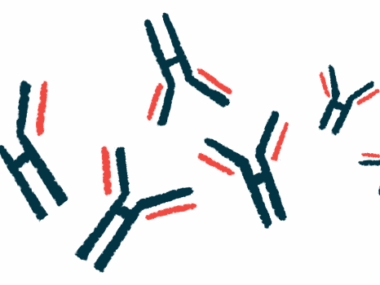Talaris Raises $115M for Clinical Trials Testing FRC001 Cell Therapy for dcSSc
Written by |

Talaris Therapeutics has raised $115 million in financing, which will be used to support the clinical development of its lead therapeutic candidate, FCR001, designed to promote immune tolerance and allow patients to stop taking immunosuppressive medications after a transplant.
The newly raised funds will support clinical trials for this cell therapy: a planned Phase 1/2a trial for people with diffuse cutaneous systemic sclerosis (dcSSc), and an ongoing Phase 3 study called FREEDOM-1 (NCT03995901), which is evaluating FCR001 in people undergoing kidney transplants.
“With this financing Talaris has assembled a world-class investor syndicate that shares our vision of the transformative potential of durable, drug-free immune tolerance. We believe Talaris’ therapy could represent a paradigm shift across multiple therapeutic areas,” Francois Nader, MD, chairman of the board at Talaris, said in a press release.
Blood stem cell transplants are a possible treatment for dcSSc, a subtype of systemic scleroderma. Previous research has indicated that such transplants can lessen organ damage and induce clinical remission. Broadly, stem cell transplants can be patient-derived (autologous) or derived from a donor (allogeneic). In both strategies, however, the immune system plays an important role in whether treatment is successful.
Prior to an autologous stem cell transplant, a patient is given high-dose chemotherapy and radiation. The basic aim of this treatment is to wipe out the patient’s immune system to decrease the risk of disease recurrence. Yet, the therapy’s toxicity often causes harmful side effects.
Allogeneic transplants, meanwhile, carry the risk of a potentially life-threatening side effect known as graft-versus-host disease (GvHD). In this complication, the body’s immune system sees the patient’s own organs and tissues as threats and attacks them.
FCR001 is an investigational, allogeneic cell therapy that aims to promote immune tolerance, thereby minimizing the risk of GvHD. This is accomplished using facilitating cells — cells that exist in the bone marrow but are distinct from stem cells — from the donor, intended to promote an immune environment that is unresponsive, or tolerant, to the recipient’s tissues.
In a previous Phase 2 trial of people undergoing kidney transplant, FCR001 induced durable, or lasting, immune tolerance in 26 of 37 participants(70%), allowing them to stop taking immunosuppressive medications used to prevent organ rejection after a transplant. With a median follow-up of five years, none of these participants have had to resume taking immunosuppressants.
The ongoing FREEDOM Phase 3 trial is comparing FCR001 to standard immunosuppression in people receiving their first kidney transplant from a living donor. The study is enrolling participants, age 18 or older; more information is available here.
The U.S. Food and Drug Administration recently approved an application from Talaris that clears the way for a Phase 1/2a clinical trial for dcSSc. The study will be conducted across multiple sites in the U.S., including Duke University and the University of Michigan.
Besides these two trials, the new financing will help advance a planned Phase 2 trial of FCR001 in people who have previously received a living donor kidney transplant.
The financing was co-led by Surveyor Capital (a Citadel company) and Viking Global Investors.
“Over the past 18 months, Talaris has made dramatic progress in assessing the potential of our unique cell therapy across multiple therapeutic areas,” said Scott Requadt, CEO of Talaris.
“We have initiated a pivotal trial for our lead indication in living donor kidney transplant, laid the groundwork for two additional Phase 2 studies, greatly expanded our team and bolstered our wholly in-house cell processing capabilities,” Requadt said. “We are grateful for the support of this outstanding syndicate of investors to help us advance our immune tolerance programs through important clinical milestones in both organ transplant and autoimmune disease.”





